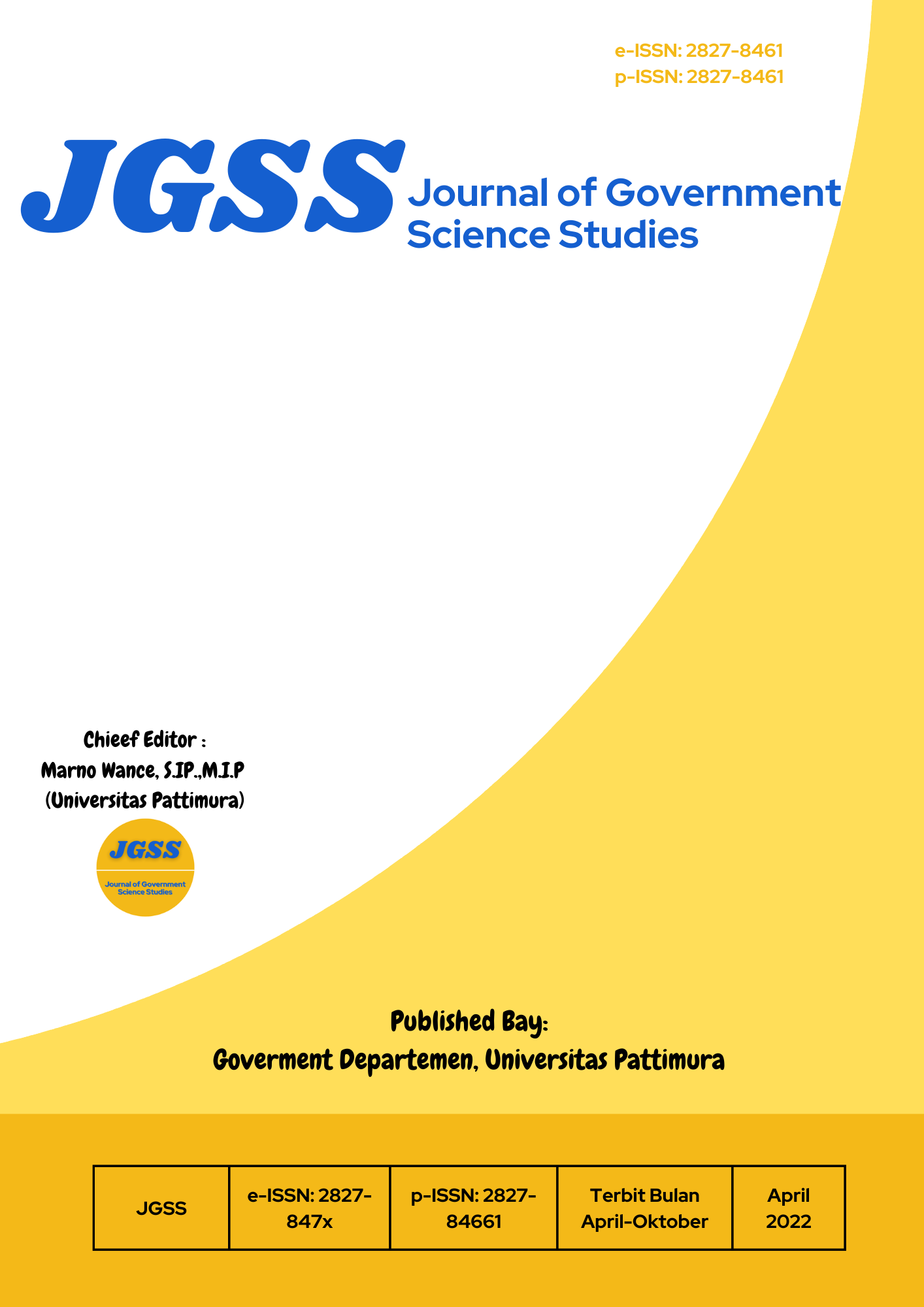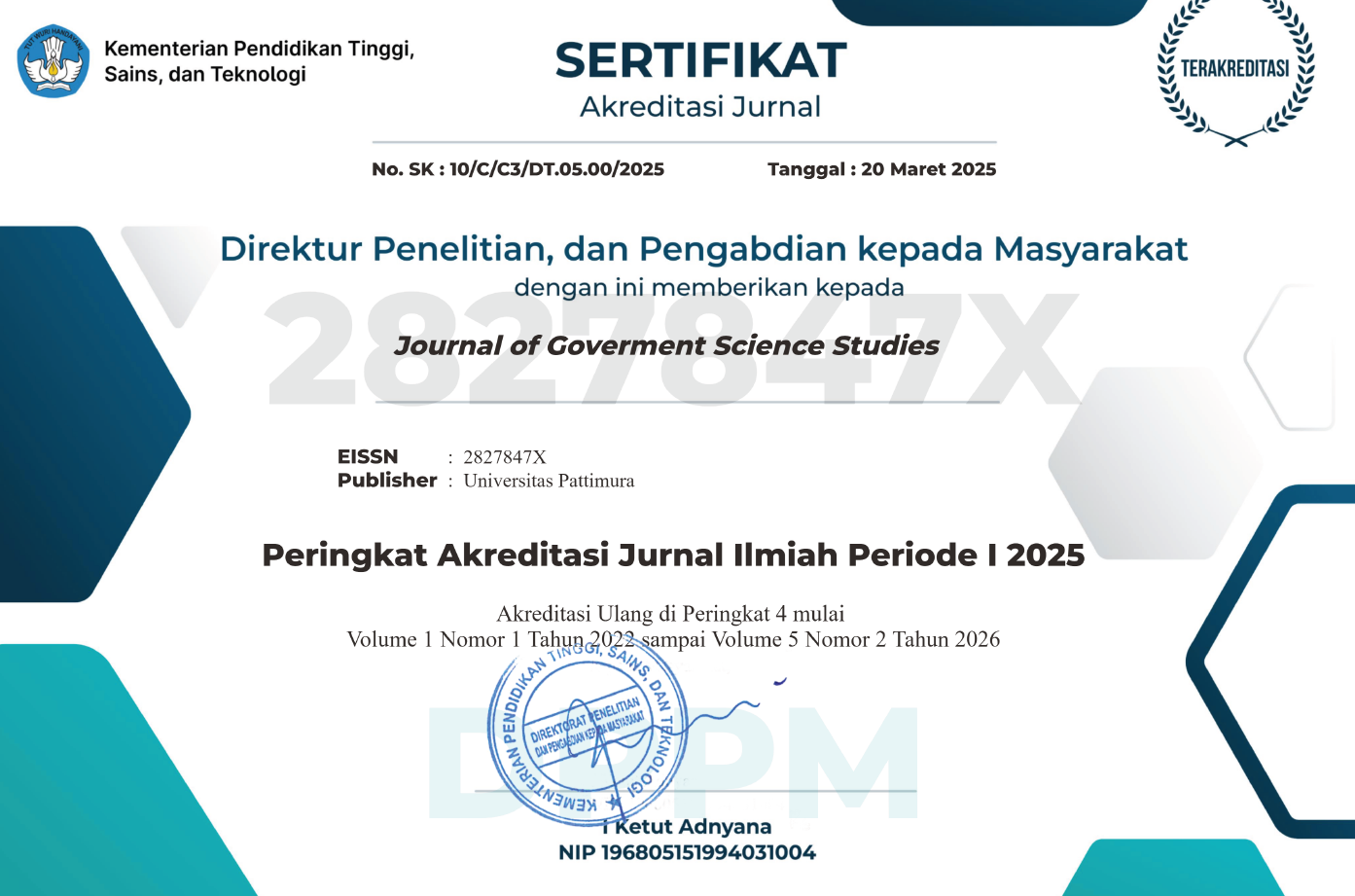Socio-Cultural Responses of Local Communities to Tourism Infrastructure Development in Wakatobi City
Abstract
This study aims to examine changes in the socio-cultural conditions of the people of Kapota Utara Village, South Wangi-Wangi Sub-district, Wakatobi Regency, as a result of the development of the Kapota Lake Tourism Attraction Area. The main focus of this research is on community perceptions of spatial changes, patterns of social interaction, and the sustainability of local cultural values in the context of tourism development. This research used a qualitative approach with a case study method. Data were collected through in-depth interviews, participatory observation, and review of tourism development planning documents. The main informants consisted of community leaders, local business actors, village officials, and visitors to the tourist area. The results showed that the development of tourist areas brought significant changes to the social structure and interaction patterns of the community. There is an increase in local economic participation, but there are also concerns related to the fading of cultural values and local wisdom due to the commercialization of social space. Some communities show resistance to the influx of labor from outside the region, while others see it as a collaborative opportunity. Recommendations from this study are the importance of integrating local culture in every stage of tourism development as well as the need for participatory communication forums between the government, communities, and businesses to minimize the potential for social conflict. In addition, there is a need for cultural preservation policies through educational programs and promotion of local values that synergize with tourism development.
Downloads
References
Alsaloum, M., Romagosa, F., & Alotaibi, S. (2024). Residents’ Perceptions of the Benefits and Costs of Tourism Development: A Case Study of Riyadh City (Saudi Arabia). Tourism and Hospitality, 5(3), 753–781. https://doi.org/10.3390/tourhosp5030044
Amrullah, A. (2022). Integration of Islamic Moderation Values on Islamic Education Learning Material at Madrasah Aliyah Level. AJIS: Academic Journal of Islamic Studies, 7(1). https://doi.org/10.29240/ajis.v7i1.4284
Andari, R., Supartha, I. W. G., Riana, I. G., & Sukawati, T. G. R. (2020). Exploring the Values of Local Wisdom as Sustainable Tourism Attractions. International Journal of Social Science and Business, 4(4). https://doi.org/10.23887/ijssb.v4i4.29178
Bai, L., & Weng, S. (2023). New Perspective of Cultural Sustainability: Exploring Tourism Commodification and Cultural Layers. Sustainability (Switzerland), 15(13). https://doi.org/10.3390/su15139880
Basri, M., Paramma, M. A., Hudriati, A., & Tamrin, D. S. (2022). Communal Attitudes on English Educational Tourism in Eastern Indonesia. International Journal of Language Education, 6(2). https://doi.org/10.26858/ijole.v6i2.34210
Braun, V., & Clarke, V. (2022). Thematic Analysis: A Practical Guide. QMiP Bulletin, 1(33). https://doi.org/10.53841/bpsqmip.2022.1.33.46
Creswell, J. (2013). Qualitative, Quantitative, and Mixed Methods Approaches. In Research design.
Daly, P., Dias, Á., & Patuleia, M. (2021). The impacts of tourism on cultural identity on lisbon historic neighbourhoods. Journal of Ethnic and Cultural Studies, 8(1). https://doi.org/10.29333/ejecs/516
Fafurida, F., Purwaningsih, Y., Mulyanto, M., & Suryanto, S. (2023). Tourism Village Development: Measuring the Effectiveness of the Success of Village Development. Economies, 11(5). https://doi.org/10.3390/economies11050133
Ginanjar, R. (2023). Community Empowerment In Tourism Development : Concepts And Implications. The Eastasouth Management and Business, 1(03). https://doi.org/10.58812/esmb.v1i03.82
Harmelia, & Edriani, D. (2020). The Effect of Tourism Rearrangement and Local Traveled Perception Toward Society Economy (Case Study: Tugu Merpati Tourist Attraction “Muaro Lasak”). https://doi.org/10.2991/aebmr.k.200305.127
Hien, D. T., & Thanh, T. D. (2022). Resident Perception of Conflict with Tourism Enterprise: An Investigation at A Mountainous Destination in Vietnam. E-Journal of Tourism. https://doi.org/10.24922/eot.v9i2.92113
Peulić, T., Marić, A., Maravić, N., Novaković, A., Kalenjuk Pivarski, B., Čabarkapa, I., … Ikonić, P. (2023). Consumer Attitudes and Preferences towards Traditional Food Products in Vojvodina. Sustainability (Switzerland), 15(16). https://doi.org/10.3390/su151612420
Rifa’i, N., & Kamaludin, M. (2021). The Concept of Spiritual Tourism. Satwika : Kajian Ilmu Budaya Dan Perubahan Sosial, 5(1). https://doi.org/10.22219/satwika.v5i1.15530
Roseveare, C. (2023). Thematic Analysis: A Practical Guide , by Virginia Braun and Victoria Clarke . Canadian Journal of Program Evaluation, 38(1). https://doi.org/10.3138/cjpe.76737
Shahzalal, M. (2016). Positive and Negative Impacts of Tourism on Culture: A Critical Review of Examples from the Contemporary Literature. An International Peer-reviewed Journal (Vol. 20).
So, S. (2011). Case Study Research: Design and Methods by YIN, ROBERT K. The Modern Language Journal, 95(3). https://doi.org/10.1111/j.1540-4781.2011.01212_17.x
Unaradjan, D. D. (2019). Metode Penelitian Kuantitatif - Google Books. Universitas Katolik Indonesia Atma Jaya.
Wakatobi, D. P. K. (2024). Dokumen Evaluasi Lingkungan Hidup (DELH): Pembangunan Kawasan Daya Tarik Wisata Danau Kapota, Desa Kapota Utara, Kecamatan Wangi-Wangi Selatan, Kabupaten Wakatobi. Kendari: Dinas Pariwisata Kabupaten Wakatobi.
Wen, X., Fu, D., Diao, Y., Wang, B., Gao, X., & Jiang, M. (2023). Exploring the Relationship between Touristification and Commercial Gentrification from the Perspective of Tourist Flow Networks: A Case Study of Yuzhong District, Chongqing. Sustainability (Switzerland), 15(16). https://doi.org/10.3390/su151612577
Yunikawati, N. A., Istiqomah, N., Priambodo, M. P., Puspasari, E. Y., Sidi, F., & Jabbar Marzanah, A. (2021). Community Based Rural Tourism (CBRT): The Impact on Local Residents Quality of Life in Indonesia (Vol. 228). https://doi.org/10.1051/e3sconf/202122802012
Zhuang, X., Yao, Y., & Li, J. (2019). Sociocultural impacts of tourism on residents of world cultural heritage sites in China. Sustainability (Switzerland), 11(3). https://doi.org/10.3390/su11030840
Copyright (c) 2025 Alimin Alwi, Syamsu Andi Kamaruddin, Najamuddin Najamuddin, A. Octamaya Tenri Awaru Awaru, Pacifique Mutijima

This work is licensed under a Creative Commons Attribution-ShareAlike 4.0 International License.








.png)





